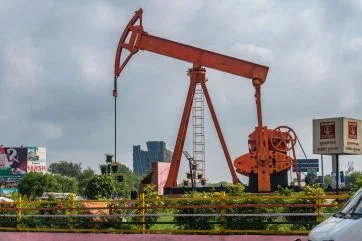India–US Trade Tensions Rise Over Steel and Auto Tariffs NMDC Limited reports a 38% drop in Q4 FY24 consolidated net profit RINL to Raise $23 Million Through Land Sales Amid Crisis

The International Energy Agency (IEA) projects that India's oil production is likely to decrease, from little under 700 kb/d in 2023 to 540 kb/d by 2030. This prediction highlights the difficulties India's energy sector faces as the country deals with an increased reliance on oil imports, which now provide 90% of its supply demands.
The government has been proactive in addressing this issue through a series of policy and fiscal reforms aimed at boosting domestic oil exploration and production. Despite these efforts, the aging fields in the Mumbai Offshore and Rajasthan Basins are contributing to the production downturn.
State-owned Oil and Natural Gas Corp. (ONGC) leads the production efforts, accounting for approximately 70% of the country's output. In a bid to reverse the declining trend, India has been actively seeking participation from international oil companies (IOCs), highlighted by ONGC's recent collaborations with Chevron and ExxonMobil.
Policy initiatives such as the Hydrocarbon Exploration Licensing Policy (HELP) and the Open Acreage Licensing Program (OALP) have been introduced to attract investment and open new areas for exploration. These measures, alongside the Discovered Small Field (DSF) rounds, aim to tap into untapped hydrocarbon resources in hopes of mitigating the anticipated decline in oil production.
However, with the IEA projecting a continued decrease in output, the Indian oil sector is at a critical juncture. The success of the government's reforms and the ability to attract significant new exploration and development projects are crucial for India's energy security and reducing its reliance on oil imports.
Also Read : New Role: Tata Steel CEO T.V. Narendran Likely to Join Tata Sons Board JSW Steel reports robust Q3 performance with profit surge to ₹2415 crore